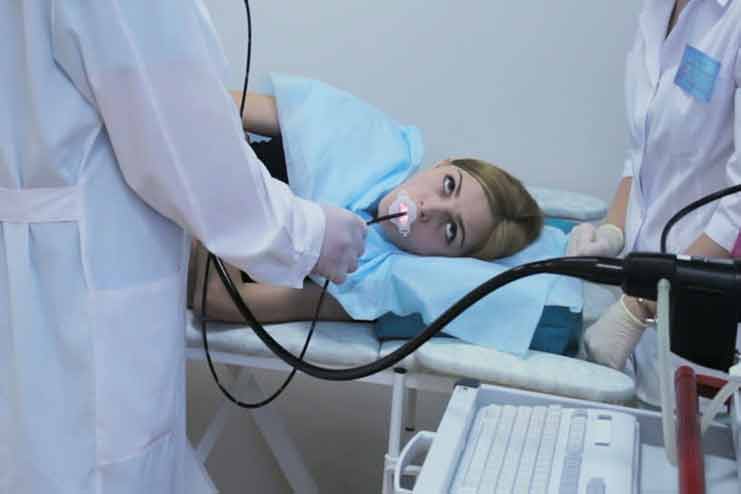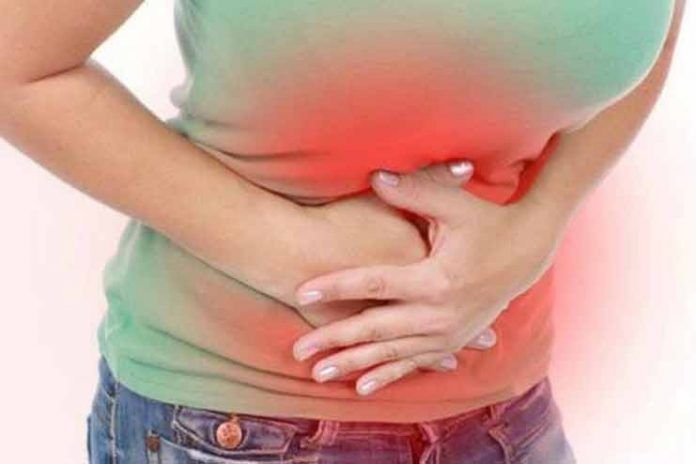Affiliate Disclaimer
Some links in this article are affiliate links. We may earn a small commission if you make a purchase through these links, at no extra cost to you. We only recommend products we find useful to our readersGastritis! It is a common health issue complained by many among us. If the symptoms like burps, burning sensation abdominal pain, bloated stomach etc. are not subsiding even after popping in an antacid pill, it may be a progressed case of Gastritis. Read through this post to learn more about the causes and home remedies for gastritis.
What is Gastritis?
Gastritis is a commonly faced health issue by many. It is a condition of inflammation, irritation or the erosion of the lining of the stomach. The disease may develop gradually or suddenly. The condition is caused for many reasons. Firstly, let us check the types.
Types Of Gastritis Include:
1. Chronic Gastritis:
It gradually develops and causes long-term complications. However, no noticeable symptoms show up in many cases. The condition leads to gradual increase in inflammatory cells and thinning of gastric mucosa and a gradual increase in inflammatory cells.
2. Acute Gastritis
The condition lasts for shorter periods of time but may cause severe symptoms. The symptoms are based on the lifestyle factors affecting the digestive system.
3. Atrophic Gastritis
It is a form of chronic gastritis, which leads to a gradual loss of gastric glandular cells and are replaced by fibrous and intestinal tissues. Due to the change in the gastric lining, the risk for malabsorption/nutrient deficiencies and autoimmune disorder reactions arise. The condition may trigger tumor growth and anemia.
Causes For Gastritis
The main causes for gastritis is the consumption of irritants like excessive alcohol, besides increased stress levels, chronic vomitings and the use of certain medications like inflammatory drugs and aspirin.
Major reasons for the development of Gastritis include:
1. Helicobacter Pyroli: H. Pyroli is the bacteria that reside in the mucous lining of the stomach. In certain cases, this bacteria develops infection, leading to the formation of ulcers in the stomach. In a few cases, it may also lead to cancer.
2. Bile Reflux: The condition of a backflow of bile in the stomach that connects to the liver and gallbladder is called bile reflux. This condition may also cause gastritis.
3. Infections: The infections in the stomach are caused by viruses or bacteria, which also causes gastritis.
But how to identify gastritis? Symptoms help identify the disease.
What are the Symptoms of Gastritis?
The symptoms of gastritis vary among individuals. There are cases where no symptoms are shown up in a few patients. However, the common symptoms include:
- Stomach upset
- Vomitings
- Abdominal Bloating
- Abdominal Pain
- Indigestion
- Heavy Hiccups
- Appetite loss
- Burning sensation in the stomach
- Back and tarry stools
How Can Gastritis Be Diagnosed?
Gastritis can be diagnosed or identified by the symptoms and the patient’s medical history and lifestyle (both present and previous) like alcohol consumptions and food habits. A doctor reviews all the aspects and conduct a few tests to diagnose the condition.

- Endoscopy: It is a procedure where a thin tube called endoscope is inserted through the mouth into the patient’s stomach to give a look at the stomach’s internal lining.The doctor then checks for inflammation and may perform a biopsy, if required. Biopsy is procedure where a small tissue of the affected part is removed and then sent to the laboratory for analysis.
- Blood tests: The blood tests are done to check the red blood cell count to determine the condition of anemia or tests are done to check for the presence of H.pylori infection or pernicious anemia.
- Fecal occult blood test (stool test): The test checks for the presence of blood in the stool, which is a possible sign of gastritis.
What is the Treatment for Gastritis?
If left untreated, the gastritis may lead to severe blood loss and risk of stomach cancer. Hence proper treatment is essential. Treatment for gastritis involves:
Drugs and antacids: Stomach acids can be reduced when one takes antacids and drugs such as proton pump inhibitors or H-2 blockers. A regimen of antibiotics as well as acid blocking drug are prescribed to reduce the heartburn and cease the H. pylori infection.
Avoiding spicy or irritating foods: It is essential to avoid irritating and spicy foods to reduce acids in the stomach. Mainly lactose from dairy products and gluten from wheat are to be avoided.
Ingesting vitamins: B12 vitamin shots help if the gastritis is caused by pernicious anemia. However, all the vitamins or any other supplements are to be taken only after the doctor’s approval.
The treatment thus targets the underlying problem. Hence with the disappearance of the underlying problems, the gastritis too does.
Note: Consult your doctor before stopping any medication, even if your symptoms subside. Self medication or self treatment is not encouraged.
Natural Gastritis Treatment And a Gastritis Diet: Home Remedies for Gastritis
In many natural ways the Gastritis treatment and diet changes help get relief from Gastritis and even prevent it from returning. Gastritis home remedies begin with removing irritating foods from the diet and replacing with soft and stomach-friendly foods like papaya, coconut water, ginger (anti-bacterial and anti-inflammatory properties), Chamomile tea (soothes the intestinal wall).
Other foods that can help prevent the occurrence of infection include:
- Green tea – Antioxidants in Green tea inhibit the development of chronic gastritis and also halt the progression of stomach cancer, according to a study. But avoid too much of it when suffering gastritis.
- Celery – Celery may be considered acidic, but many consume in moderation as a remedy for gastritis or reflux symptoms.
- Onions – Onions are believed to prevent the recurrence of infection that causes gastritis. However, it can be avoided when suffering severe gastritis.
- Broccoli – A chemical in broccoli sprouts known as sulforaphane has an antibacterial effect on H. Pylori. Hence, it is known to inhibit infection.
- Parsley – Parsley is known as effective medicine for gastritis. Chop parsley roots (3-4 tbsp) and add to cup. Pour 2 dl of boiling water and wait for 10 minutes. Drink, 2-3 cups a day.
- Kale – Kale is a food rich in calcium and Vitamin B, thus help soothe gastritis symptoms.
- Berries – Berries (blueberries, blackberries, raspberries, strawberries, cranberries) help inhibit the growth of H. pylori and reduce gastritis and ulcer formation. Have them in moderate amount.
- Legumes Thyme – Foods rich in fiber like legumes has been proven to be beneficial for gastritis and other digestive disorders. Hence, consumption of legumes in any form help relieve gastric trouble.
More tips to help manage gastritis include:
- Avoiding packaged foods rich in chemicals or ingredients.
- Including more of fresh veggies and fruits in the daily diet.
- Consuming a plenty of water and being hydrated.
- Diving meals into smaller amounts many times.
- Avoiding spicy ingredients like petter, chilli, hot sauce etc.
- Avoiding the over the counter drugs
- Exercising regular to control the diet.
What are the Foods To Avoid To Prevent Gastritis?
Certain foods that cause gastritis symptoms should be reduced or stopped altogether. Gastritis foods to avoid:
- High Fatty Foods
- Cigarette Smoking
- Excessive Alcohol
- Carbonated Drinks
- Fruit juices of Grape, Orange, Pineapple
In conclusion, gastritis is a bothering health condition that depletes the quality of daily life. It has can be addressed on time with home remedies to avoid the worsening of the condition. The best part is that the condition improves with proper treatment and gastritis can be cured with home remedies. It is essential to keep a track on the symptoms to better understand how foods triggers gastritis and make necessary changes.
In this Article


















